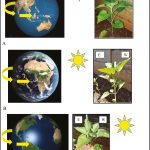Postdocs’ lab engagement predicts trajectories of PhD students’ skill development (PNAS)
 When considering the traditional structure of mentorship in doctoral programs, it is easy to credit the doctoral advisor as the primary expert and liaison to their graduate students in a mentorship strategy known as the cognitive apprenticeship model. Contrary to this strategy is the cascading mentorship model, in which senior lab members at every stage contribute to mentoring junior lab members. Although mentorship is often only explicitly part of the job description for PIs, Feldon et al. found that participation in mentorship by postdocs and senior graduate students can predict students’ learning trajectory, whereas interactions in the lab with PIs have no bearing on students’ skill development. They followed 336 PhD students over the course of 4 years and measured their development through scoring sole-authored writing samples on 12 target skills to track their year-by-year growth and collected survey data annually regarding the structure and mentorship style of their individual labs. They found that the best predictors for positive skill growth in students were interacting with senior graduate students through discussing primary literature and holding laboratory discussions that include senior grad students and postdocs. PI engagement in the lab can not predict skill development or trajectories at all. This study shows that postdocs and senior graduate students are providing more mentorship services than traditionally expected and supports the promise of the cascading mentorship model in producing favorable outcomes compared to the cognitive apprenticeship model. (Summary by Rebecca Hayes) Proc. Natl. Acad. Sci. USA 9 https://doi.org/10.1073/pnas.1912488116
When considering the traditional structure of mentorship in doctoral programs, it is easy to credit the doctoral advisor as the primary expert and liaison to their graduate students in a mentorship strategy known as the cognitive apprenticeship model. Contrary to this strategy is the cascading mentorship model, in which senior lab members at every stage contribute to mentoring junior lab members. Although mentorship is often only explicitly part of the job description for PIs, Feldon et al. found that participation in mentorship by postdocs and senior graduate students can predict students’ learning trajectory, whereas interactions in the lab with PIs have no bearing on students’ skill development. They followed 336 PhD students over the course of 4 years and measured their development through scoring sole-authored writing samples on 12 target skills to track their year-by-year growth and collected survey data annually regarding the structure and mentorship style of their individual labs. They found that the best predictors for positive skill growth in students were interacting with senior graduate students through discussing primary literature and holding laboratory discussions that include senior grad students and postdocs. PI engagement in the lab can not predict skill development or trajectories at all. This study shows that postdocs and senior graduate students are providing more mentorship services than traditionally expected and supports the promise of the cascading mentorship model in producing favorable outcomes compared to the cognitive apprenticeship model. (Summary by Rebecca Hayes) Proc. Natl. Acad. Sci. USA 9 https://doi.org/10.1073/pnas.1912488116



